- Home
- James Rollins
SANDSTORM sf-1 Page 2
SANDSTORM sf-1 Read online
Page 2
It would have been easy to step over him that evening, but she had once been as abandoned and alone as the kitten. Someone had taken her in at the time, too. And like Billie, she had been domesticated-but neither ended up completely tamed, preferring the wild places and rooting through lost corners of the world.
But all that had ended with one explosion on a bright spring day.
All my fault… Crying and screams again filled her head, merging with the sirens of the moment.
Breathing too hard, Safia reached to the bedside lamp, a small Tiffany replica depicting stained-glass dragonflies. She flicked the lamp’s switch a few more times, but the lamp remained dark. Electricity was out. The storm must have knocked down a power line.
Maybe that was all the commotion.
Let it be something that simple.
She swung out of bed, barefoot, but in a warm flannel nightshirt that reached her knees. She crossed to the window and twisted the blinds to peer through to the street below. Her flat was on the fourth floor.
Below, the usually quiet and dignified street of iron lamps and wide sidewalks had become a surreal battlefield. Fire engines and police cars jammed the avenue. Smoke billowed despite the rain, but at least the fierce storm had faded to the usual London weep. With the streetlamps darkened, the only illumination came from the flashers atop the emergency vehicles. Yet, down the block, a deeper crimson glow flickered through the smoke and dark.
Fire.
Safia’s heart thudded harder, her breath choked-not from old terrors, but from newborn fears for the present. The museum! She yanked the blinds’ cords, ripping them up, and fumbled with the lock to the window. She pushed the sash open and bent out into the rain. She barely noted the icy drops.
The British Museum was only a short walk from her flat. She gaped at the sight. The northeast corner of the museum had crumbled to a fiery ruin. Flames flickered from shattered upper windows while smoke belched out in thick gouts. Men, cowled in rebreathing masks, dragged hoses. Jets of water sailed high. Ladders rose into the air from the back of engines.
Still, worst of all, a gaping hole smoked on the second floor of the northeast corner. Rubble and blackened blocks of cement lay strewn out into the street. She must not have heard the explosion or just attributed it to the storm’s thunder. But this was no lightning strike.
More likely a bomb blast…a terrorist attack. Not again…
She felt her knees grow weak. The north wing…her wing. She knew the smoking hole led into the gallery at the end. All her work, a lifetime of research, the collection, a thousand antiquities from her homeland. It was too much to fathom. Disbelief made the sight even more unreal, a bad dream from which she would awake at any moment.
She fell back into the security and sanity of her room. She turned her back on the shouts and flashing lights. In the darkness, stained-glass dragonflies bloomed to life. She stared, unable to comprehend the sight for a moment, then it dawned. The power was back on.
At that moment, the phone on her nightstand rang, startling her.
Billie raised his head from the comforter, ears pricked at the jangling.
Safia hurried to the phone and picked up the receiver. “Hello?”
The voice was stern, professional. “Dr. al-Maaz?”
“Y-yes?”
“This is Captain Hogan. There’s been an accident at the museum.”
“Accident?” Whatever had happened was more than just an accident.
“Yes, the museum’s director has requested I call you into the briefing. Can you join us in the next hour?”
“Yes, Captain. I’ll be there immediately.”
“Fine. Your name will be left at the security blockade.” The phone clicked as the captain hung up.
Safia stared around her bedroom. Billie thumped his tail in clear feline irritation at the night’s constant interruptions. “I won’t be gone long,” she mumbled, unsure if she spoke the truth.
Sirens continued to wail outside her window.
The panic that had woken her refused to fade away completely. Her worldview, the security of her position in the staid halls of a museum, had been shaken. Four years ago, she had fled a world where women strapped pipe bombs to their chests. She had fled to the safety and or-derliness of academic life, abandoning fieldwork for paperwork, dropping picks and shovels for computers and spreadsheets. She had dug herself a little niche in the museum, one where she felt safe. She had made a home here.
But still disaster had found her.
Her hands trembled. She had to grip one in the other to fight another attack. She fancied nothing more than to crawl back into bed and pull the comforter over her head.
Billie stared at her, eyes reflecting the lamplight.
“I’ll be fine. Everything’s okay,” Safia said quietly, more to herself than to the cat.
Neither was convinced.
02:13 A.M. GMT (09:13 P.M. EST)
FORT MEADE, MARYLAND
THOMAS HARDEY hated to be disturbed while he worked on the New York Times crossword puzzle. It was his Sunday-night ritual, which also included a neat snifter of forty-year-old Scotch and a fine cigar. A fire crackled in the fireplace.
He leaned back in his leather wingback chair and stared at the half-filled puzzle, punching the nub on his Montblanc ballpoint pen.
He crinkled a brow at 19 down, a five-letter word. “19. The sum of all men.”
As he pondered the answer, the phone rang on his desk. He sighed and pushed his reading glasses from the tip of his nose up to the line of his receding hairline. It was probably just one of his daughter’s friends calling to discuss how her weekend date had fared.
As he leaned over, he saw the fifth line was blinking, his personal line. Only three people had that number: the president, the chairman of the Joint Chiefs, and his second-in-command at the National Security Agency.
He placed the folded newspaper on his lap and tapped the line’s red button. With that single touch, a shifting algorithmic code would scramble any communication.
He lifted the receiver. “Hardey here.”
“Director.”
He sat straighter, wary. He did not recognize the other’s voice. And he knew the voices of the three people who had his private number as well as he knew his own family’s. “Who is this?”
“Tony Rector. I’m sorry for disturbing you at this late hour.”
Thomas shuffled his mental Rolodex. Vice Admiral Anthony Rector. He connected the name to five letters: DARPA. The Defense Advanced Research Projects Agency. The department oversaw the research-and-development arm of the Department of Defense. They had a motto: Be there first. When it came to technological advances, the United States could not come in second place.
Ever.
A tingling sense of dread grew. “How may I help you, Admiral?”
“There’s been an explosion at the British Museum in London.” He went on to explain the situation in great detail. Thomas checked his watch. Less than forty-five minutes had passed since the blast. He was impressed by the ability of Rector’s organization to gather so much intelligence in such a short time.
Once the admiral finished, Thomas asked the most obvious question. “And DARPA’s interest in this blast?”
Rector answered him.
Thomas felt the room go ten degrees cooler. “Are you sure?”
“I already have a team in place to pursue that very question. But I’m going to need the cooperation of British MI5…or better yet…”
The alternative hung in the air, unspoken even over a scrambled line.
Thomas now understood the clandestine call. MI5 was Britain’s equivalent of his own organization. Rector wanted him to throw up a smoke screen so a DARPA team could whisk in and out before anyone else suspected the discovery. And that included the British intelligence agency.
“I understand,” Thomas finally answered. Be there first. He prayed they could live up to this mission. “Do you have a team ready?”
�
��They’ll be ready by morning.”
From the lack of further elaboration, Thomas knew who would be handling this. He drew a Greek symbol on the margin of his newspaper.
“I’ll clear the way for them,” he said to the phone.
“Very good.” The line went dead.
Thomas settled the phone to the cradle, already planning what must be done. He would have to work quickly. He stared down at the unfinished crossword puzzle: 19 down.
A five-letter word for the sum of all men.
How appropriate.
He picked up a pen and filled in the answer in block letters.
SIGMA.
02:22 A.M. GMT
LONDON, ENGLAND
SAFIA STOOD before the barricade, a yellow-and-black A-frame. She kept her arms folded, anxious, cold. Smoke filled the air. What had happened? Behind the barricade, a policeman held her wallet in his hand and compared her photo to the woman who stood before him.
She knew he was having a hard time matching the two. In hand, her museum identification card portrayed a studious thirty-year-old woman of coffee-and-cream complexion, ebony hair tied back in an efficient braid, green eyes hidden behind black reading glasses. In contrast, before the young guard stood a soaking, bedraggled woman, hair loosely plastered in long swaths to her face. Her eyes felt lost and confused, focused beyond the barriers, beyond the frenzy of emergency personnel and equipment.
News crews dotted the landscape, haloed by the spots from their cameras. A few television trucks stood parked half up on the sidewalks. She also spotted two British military vehicles among the emergency crews, along with personnel bearing rifles.
The possibility of a terrorist attack could not be dismissed. She had heard such rumblings among the crowd and from a reporter she had to sidestep to reach the barricade. And not a few cast suspicious glances in her direction, the lone Arab on the street. She’d had firsthand experience with terrorism, but not in the manner these folks suspected. And maybe she was even misinterpreting the reactions around her. A form of paranoia, what was termed hyperanxiety, was a common sequela to a panic attack.
Safia continued through the crowd, breathing deeply, focusing on her purpose here. She regretted forgetting her umbrella. She had left her flat immediately after getting the call, delaying only long enough to pull on a pair of khaki slacks and a white floral blouse. She had donned a knee-length Burberry coat, but in her hurry, the matching umbrella had been left in its stand by the door. Only when she reached the first floor of her building and rushed into the rain did she realize her mistake. Anxiety kept her from climbing back up to the fourth floor to retrieve it.
She had to know what had happened at the museum. She’d spent the past decade building the collection, and the past four years running her research projects out of the museum. How much had been ruined? What could be salvaged?
Outside, the rain kicked up again to a steady downpour, but at least the night skies were less angry. By the time she reached the makeshift security checkpoint that cordoned off access, she had been soaked to the bone.
She shivered as the guard satisfied himself with her identification.
“You’re clear to proceed. Inspector Samuelson is awaiting you.”
Another policeman escorted her to the southern entrance of the museum. She stared up at its pillared facade. It had the solidness of a bank vault, a permanence that could not be doubted.
Until this night…
She was ushered through the entrance and down a series of stairs. They passed through doors markedMUSEUM STAFF ONLY She knew where she was being taken. To the subterranean security suite.
An armed guard stood watch at the door. He nodded at their approach, clearly expecting them. He pulled the door open.
Her escort passed her on to a new fellow: a black man dressed in civilian clothes, an undistinguished blue suit. He stood a few inches taller than Safia, hair gone completely gray. His face looked like well-worn leather. She noticed a gray shadow of stubble across his cheeks, un-shaven, called from his bed most likely.
He held out a hard hand. “Inspector Geoffrey Samuelson,” he said as firmly as his handshake. “Thank you for coming so quickly.”
She nodded, too nervous to speak.
“If you’ll follow me, Dr. al-Maaz, we need your assistance in investigating the cause of the explosion.”
“Me?” she managed to force out. She passed a break room, crowded with security staff. It appeared the entire staff, all shifts, had been summoned. She recognized several of the men and women, but they stared at her now as if she were a stranger. The murmur of their chatter fell silent as she passed. They must have known she had been called in, but they didn’t seem to know the reason any more than she did. Still, suspicion was plain behind the silence.
She held her back straighter, irritation sparking through her anxiety. These were her coworkers, colleagues. Then again, they were all too aware of her past.
Her shoulders slumped as the inspector led her down the hall to the farthest room. She knew it housed the “nest,” as it was nicknamed by the staff, an oval-shaped room whose walls were completely covered with video-surveillance monitors. Inside, she found the room almost deserted.
She spotted the head of security, Ryan Fleming, a short but stout man of middle years. He was easily distinguished by his entirely hairless pate and beaked nose, earning him the nickname the “Bald Eagle.” He stood beside a lanky man wearing a crisp military uniform, including a sidearm. The pair leaned over the shoulders of a technician who was seated at a bank of monitors. The group glanced over to her as she entered.
“Dr. Safia al-Maaz, curator of the Kensington Gallery,” Fleming said as introduction. Straightening, he waved her over.
Fleming had been on staff since before Safia had assumed her position. A guard at the time, he had worked his way through the ranks to become chief of security. Four years ago, he had foiled the theft of a pre-Islamic sculpture from her gallery. It was this diligence that had won him his current position. The Kensingtons knew how to reward those who had done right by them. Ever since then, he had been particularly protective of Safia and her gallery.
She joined the group by the video bank, followed by Inspector Samuelson. Fleming touched her shoulder, his eyes wounded. “I’m so sorry. Your gallery, your work…”
“How much was lost?”
Fleming looked sick. He simply pointed to one of the monitors. She leaned toward it. It was a live feed. In black and white, she saw a view down the main hall of the north wing. Smoke roiled. Men, masked in protective suits, worked throughout the wing. A collection of them gathered before the security gate that led into the Kensington Gallery. They appeared to be staring up at a figure tied to the grating, a gaunt, skeletal shape, like some emaciated scarecrow.
Fleming shook his head. “The coroner will be allowed in shortly to identify the remains, but we’re sure it’s Harry Masterson, one of my men.”
The frame of bones continued to smoke. That had once been a man? Safia felt the world tilt under her, and she fell back a step. Fleming steadied her. A conflagration of a magnitude powerful enough to burn the flesh off the bone was beyond her comprehension.
“I don’t understand,” she mumbled. “What happened here?”
The man in military blue answered, “That’s what we’re hoping you can shed some light on.” He turned to the video technician. “Rewind back to zero one hundred.”
The technician nodded.
The military man turned to Safia as his order was carried out. His face was hard, unwelcoming. “I’m Commander Randolph, representative of the Ministry of Defence’s antiterrorist division.”
“Antiterrorist?” Safia stared around at the others. “This was a bombing?”
“That’s yet to be determined, ma’am,” the commander said.
The technician stirred. “All ready, sir.”
Randolph waved her to the monitor. “We’d like you to watch this, but what you’re about to see is classif
ied. Do you understand?”
She didn’t, but she nodded anyway.
“Play it,” Randolph commanded.
On the screen, a camera showed the rear room of the Kensington Gallery. All was in order, though the space was dark, lit only by security lights.
“This was taken just after one o’clock,” the commander narrated.
Safia watched a new light float in from a neighboring room. At first, it appeared as if someone had entered, bearing aloft a lantern. But it soon became clear that the source of light moved on its own. “What is that?” she asked.
The technician answered, “We’ve studied the tape with various filters. It appears to be a phenomenon called ball lightning. A free-floating globule of plasma jettisoned from the storm. This is the first time in history one of the bloody buggers has been caught on film.”
Safia had heard of such lightning displays. Balls of charged air, luminescent, that traveled horizontally over the ground. They appeared on open plains, inside houses, aboard airplanes, even within submarines. But such phenomena rarely caused any harm. She glanced back to the live-feed monitor with its smoking charnel house. Surely this wasn’t the cause of the blast.
As she pondered this, a new figure appeared on the monitor, a guard.
“Harry Masterson,” Fleming said.
Safia took a deep breath. If Fleming was right, this was the same man whose bones smoked on the other monitor. She wanted to close her eyes, but couldn’t.

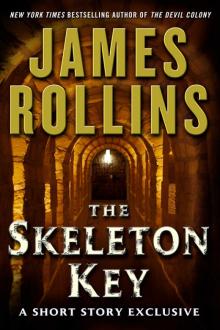 The Skeleton Key
The Skeleton Key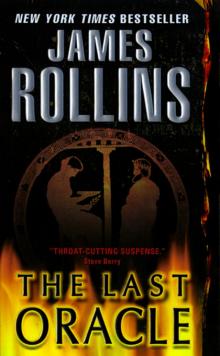 The Last Oracle
The Last Oracle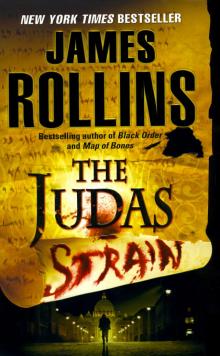 The Judas Strain
The Judas Strain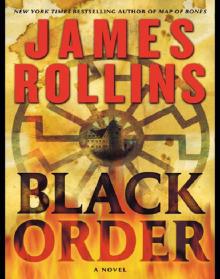 Black Order
Black Order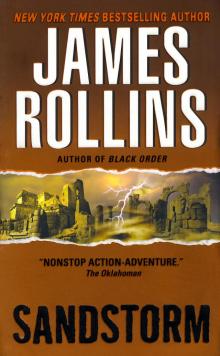 Sandstorm
Sandstorm Ghost Ship
Ghost Ship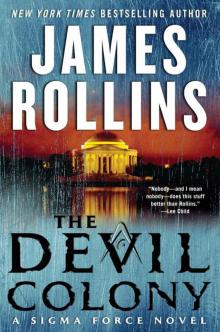 The Devil Colony
The Devil Colony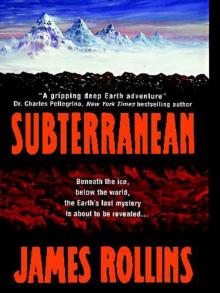 Subterranean
Subterranean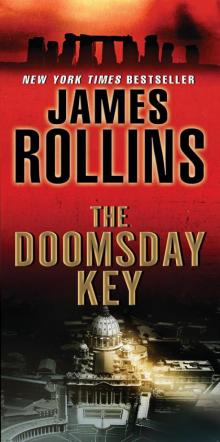 The Doomsday Key
The Doomsday Key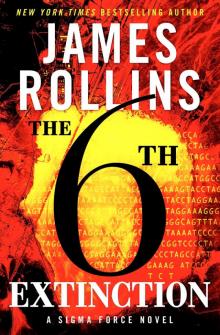 The 6th Extinction
The 6th Extinction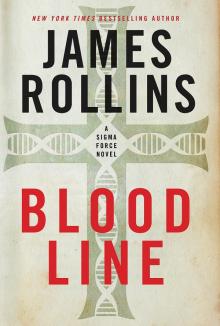 Bloodline
Bloodline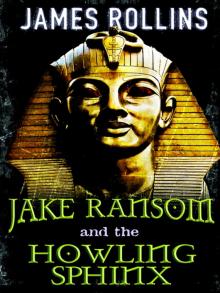 Jake Ransom and the Howling Sphinx
Jake Ransom and the Howling Sphinx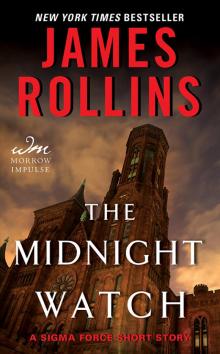 The Midnight Watch
The Midnight Watch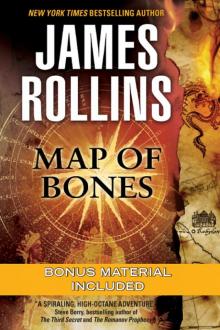 Map of Bones
Map of Bones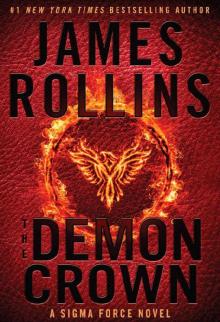 The Demon Crown
The Demon Crown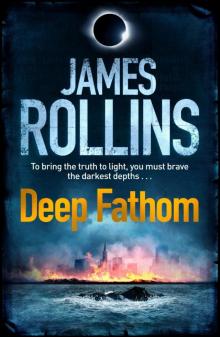 Deep Fathom
Deep Fathom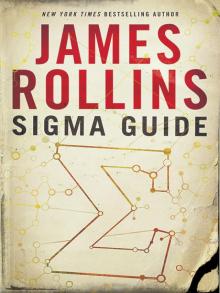 Sigma Guide
Sigma Guide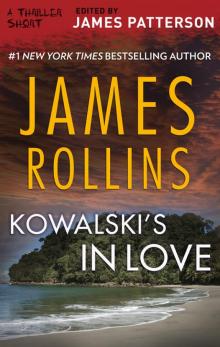 Kowalski's in Love
Kowalski's in Love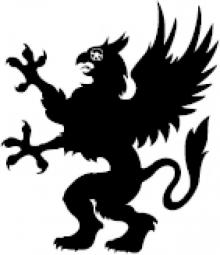 Jake Ransom and the Skull King's Shadow
Jake Ransom and the Skull King's Shadow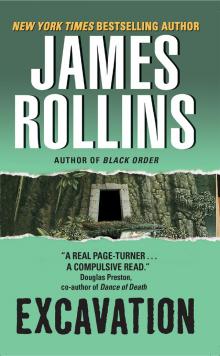 Excavation
Excavation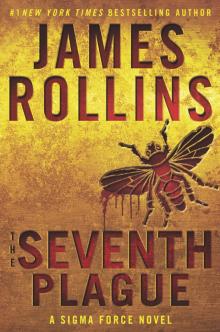 The Seventh Plague
The Seventh Plague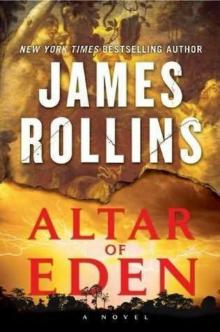 Altar of Eden
Altar of Eden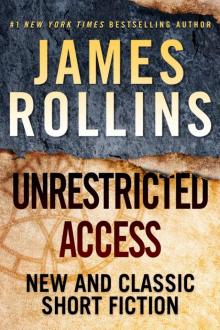 Unrestricted Access: New and Classic Short Fiction
Unrestricted Access: New and Classic Short Fiction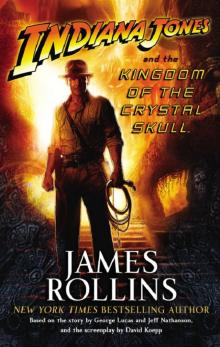 Indiana Jones and the Kingdom of the Crystal Skull
Indiana Jones and the Kingdom of the Crystal Skull Crucible
Crucible The Eye of God
The Eye of God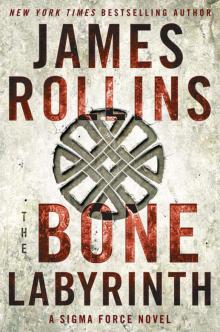 The Bone Labyrinth
The Bone Labyrinth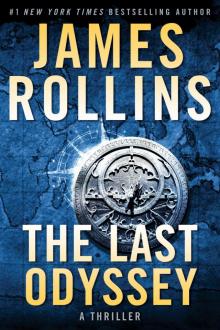 The Last Odyssey: A Thriller
The Last Odyssey: A Thriller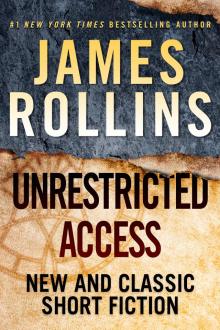 Unrestricted Access
Unrestricted Access Amazonia
Amazonia Blood Brothers: A Short Story Exclusive
Blood Brothers: A Short Story Exclusive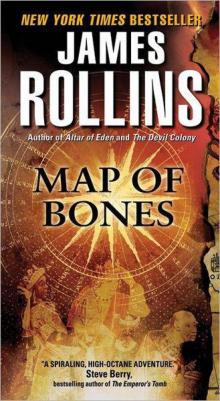 Map of Bones: A Sigma Force Novel
Map of Bones: A Sigma Force Novel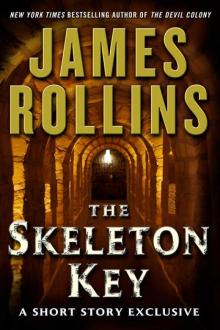 The Skeleton Key (sigma force)
The Skeleton Key (sigma force)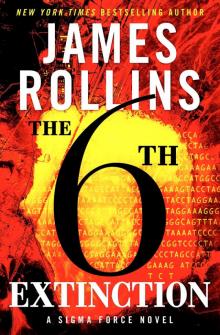 Sigma Force 10 - The Sixth Extinction
Sigma Force 10 - The Sixth Extinction Innocent Blood
Innocent Blood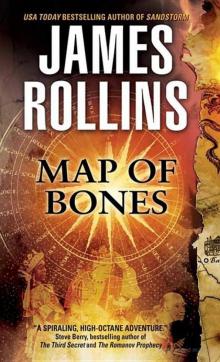 Map of Bones sf-2
Map of Bones sf-2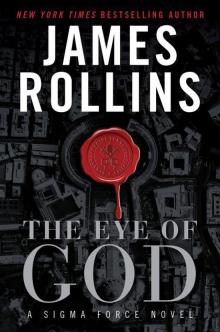 The Eye of God: A Sigma Force Novel
The Eye of God: A Sigma Force Novel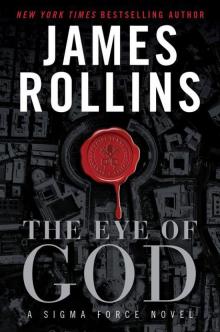 The Eye of God: A Sigma Force Novel sf-9
The Eye of God: A Sigma Force Novel sf-9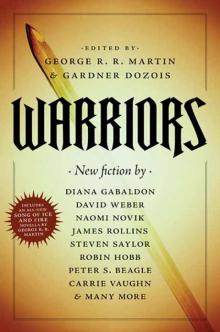 The Pit
The Pit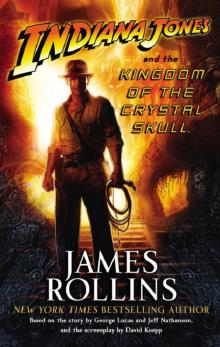 Indiana Jones and the The Kingdom Of The Crystal Skull
Indiana Jones and the The Kingdom Of The Crystal Skull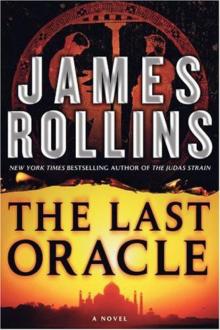 The Last Oracle (2008) sf-5
The Last Oracle (2008) sf-5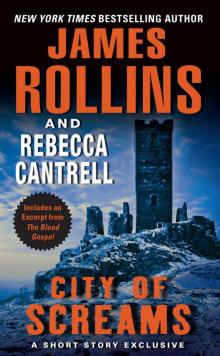 City of Screams
City of Screams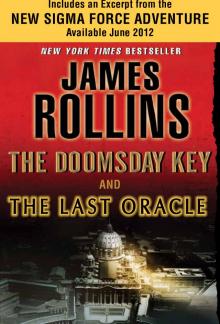 The Doomsday Key and The Last Oracle with Bonus Excerpts
The Doomsday Key and The Last Oracle with Bonus Excerpts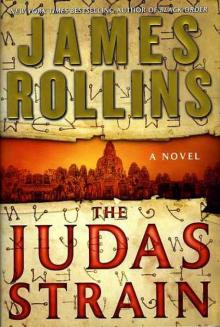 The Judas Strain sf-4
The Judas Strain sf-4 Blood Infernal
Blood Infernal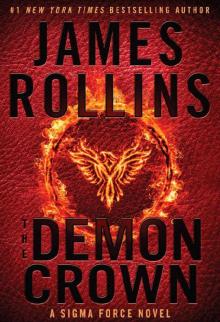 The Demon Crown: A Sigma Force Novel
The Demon Crown: A Sigma Force Novel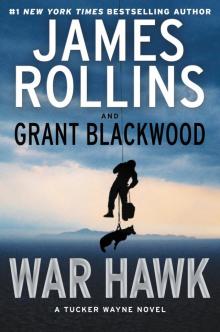 War Hawk: A Tucker Wayne Novel
War Hawk: A Tucker Wayne Novel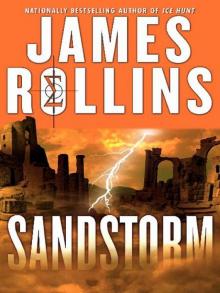 SANDSTORM sf-1
SANDSTORM sf-1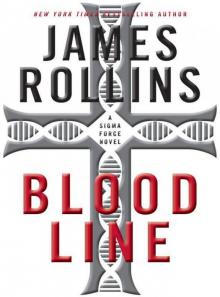 Bloodline: A Sigma Force Novel
Bloodline: A Sigma Force Novel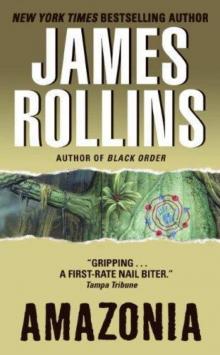 Amazonia: a novel
Amazonia: a novel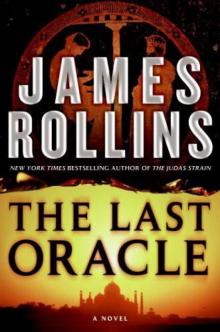 The Last Oracle: A Sigma Force Novel
The Last Oracle: A Sigma Force Novel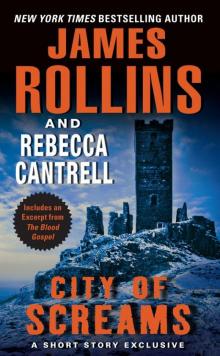 City of Screams (the order of the sanguines)
City of Screams (the order of the sanguines)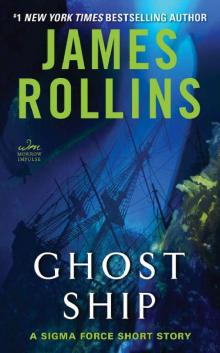 Ghost Ship: A Sigma Force Short Story
Ghost Ship: A Sigma Force Short Story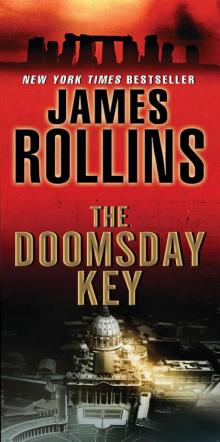 The Doomsday Key: A Sigma Force Novel
The Doomsday Key: A Sigma Force Novel